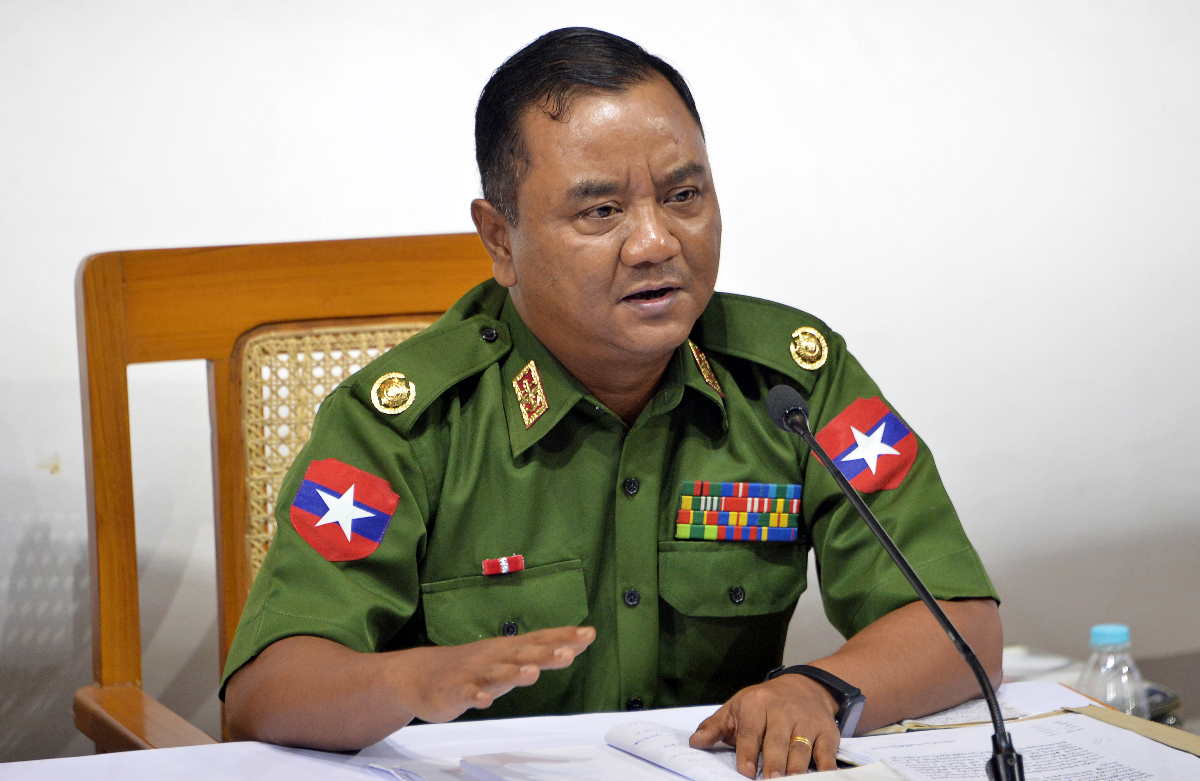Myanmar said its military was conducting a rare court martial following a probe into alleged mass graves in crisis-hit Rakhine state, two years after a bloody crackdown drove some 740,000 Rohingya into Bangladesh.
In February 2018, an Associated Press report alleged at least five mass graves of Rohingya in Rakhine's Gu Dar Pyin village – a claim denied by the government – which said the bodies were those of "terrorists".
But the military's official website said Saturday that an investigation had found "weakness in following instructions" in Gu Dar Pyin, and that a court martial would "proceed in accordance with the procedures of Military Justice."
Military spokesman Zaw Min Tun confirmed the probe Sunday, and said the report of mass graves "is just an allegation".
But "detailed information cannot be released yet", he told the media.
The report described grisly violence at the hands of soldiers and Buddhist vigilantes, who allegedly attacked villagers with guns, knives, rocket launchers and grenades before dumping bodies into pits and dousing them with acid.
Estimates from survivors in Bangladesh put the death toll in the hundreds, the report said.
Security forces claimed they were under attack by some 500 villagers, and that they had acted "in self-defence", according to state-run media last year.
Proportionate response
United Nations (UN) investigators want Myanmar generals prosecuted for genocide for overseeing the brutal crackdown in Rakhine state.
The army staunchly denies the allegation, calling the 2017 operation a proportionate response to deadly militant attacks on police posts.
Rights groups say the military has done little to hold anyone accountable for atrocities.
It previously admitted that members of the security forces had helped kill 10 Rohingya in a different Rakhine village in September, 2017.
Four officers and three soldiers were sentenced to 10 years in prison with hard labour, but a prison official said in May that they were "no longer in detention".
Conflict-scarred Rakhine state is virtually sealed off to media, and has in recent months been the site of fierce battles between the military and the Arakan Army – a rebel group claiming to fight for more autonomy for ethnic Rakhine Buddhists.
In June the government ordered all mobile phone operators to suspend internet data in nine townships across
Rakhine and neighbouring Chin state, saying the internet was being used to coordinate illegal activities.
But mobile operator Telenor Group said Sunday the internet had resumed in "five of the nine affected townships" the day before.
Telenor said it was urging for internet services to be restored to the remaining four affected townships in Rakhine for "humanitarian purposes".
UN rights investigators have said they fear the data blackout could serve as a cover for human rights violations by the military. - AFP
